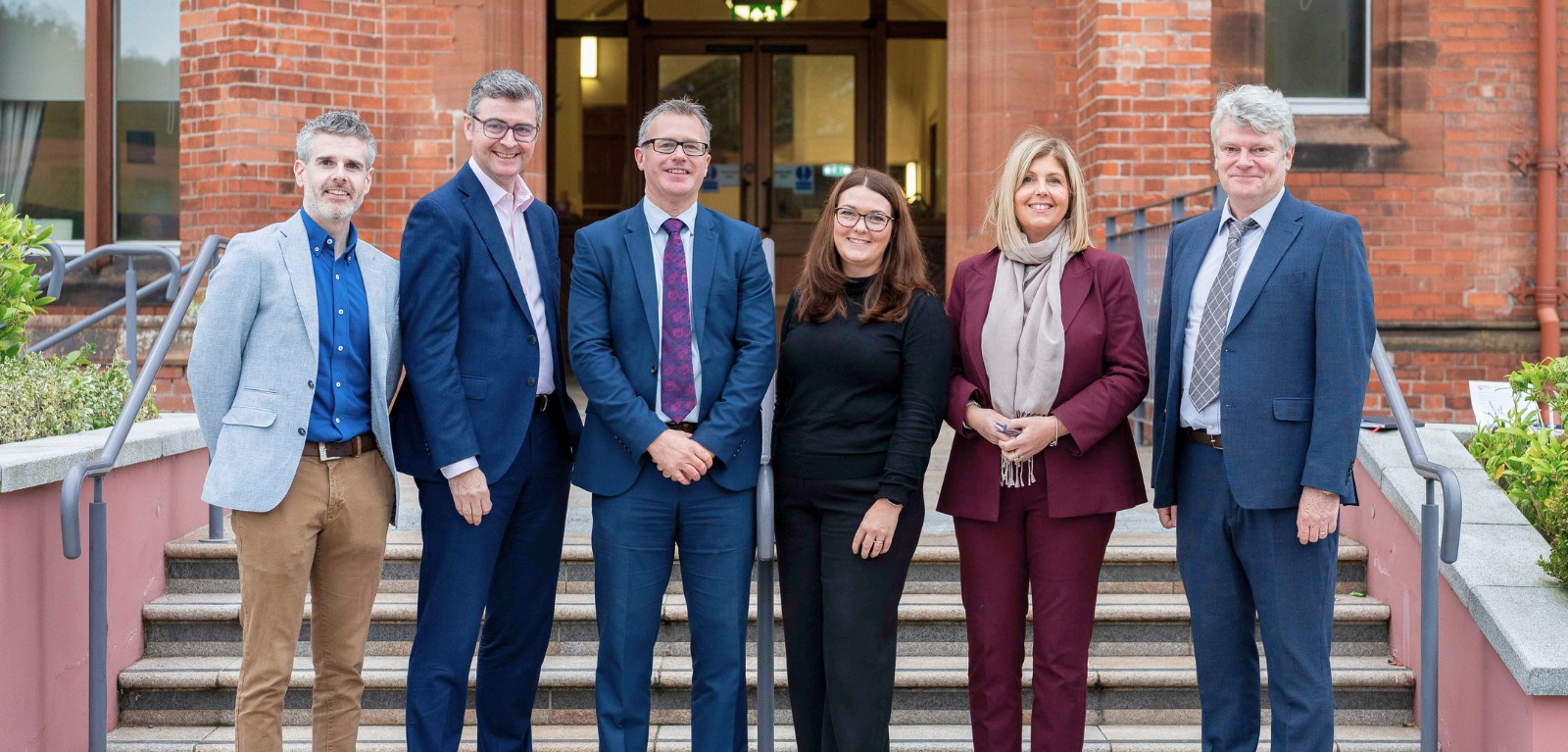QBS Business Breakfast Insights: Restoring Balance Between People and Performance
Queen’s Business School recently welcomed business leaders and academic experts to the latest event in its Business Breakfast Insights series.

This session, titled “The Leadership Pendulum”, focused on the evolving relationship between employee wellbeing and organisational performance. As workplaces become increasingly shaped by hybrid models, intergenerational teams, and shifting employee expectations, the need to recalibrate leadership approaches has never been more important.
Psychological Safety as a Strategic Imperative
The morning began with a keynote from Dr Juliet Hassard, who presented findings from her ESRC-funded research into value-based leadership. Her work highlights the effects of the post-pandemic environment and growing occurrence of presenteeism in organisations—where employees are physically present but not fully engaged or productive—which is estimated to cost UK businesses £24 billion annually.
Dr Hassard introduced the SUPPORT framework, a practical resource designed to help leaders create psychologically safe environments. The framework encourages understanding, openness, and recovery, and will soon be available to small and medium-sized enterprises (SMEs) seeking to improve performance through people-centred leadership. The message was clear: wellbeing is not a peripheral concern—it is central to economic resilience and organisational success.
Insights from Industry: Values, Data, and Dialogue
The panel discussion that followed brought together senior leaders from across sectors to explore how organisations are responding to these challenges in practice.
Brendan Mooney, Chief Executive of Kainos, spoke about the importance of aligning performance with values, particularly during periods of change. He emphasised that consistent and transparent communication is essential to maintaining trust and engagement, and that leadership must be both principled and adaptive.
Caroline van der Feltz, UK HR Director at Danske Bank, reflected on the complexities of managing a multi-generational workforce, with up to four generations working within the same teams. She noted that differences in expectations and communication styles can lead to siloes, especially in hybrid environments. However, she also shared how inclusive policy development—such as support for caregivers—has emerged through active listening and employee-led dialogue, reinforcing the value of responsiveness in HR strategy.
Connor O’Rourke, co-founder of Root & Rise, offered a perspective in values-driven leadership. He highlighted how younger employees, particularly Gen Z, are increasingly motivated by purpose, wellbeing, and authenticity. Connor stressed that leadership today must go beyond rhetoric, requiring leaders to embed values into culture through everyday actions and to provide environments where employees feel heard and supported.
Reframing the Employee Value Proposition
A recurring theme throughout the morning was the need to rethink the Employee Value Proposition (EVP). As organisations move toward greater pay transparency, there is a growing imperative to ensure that reward strategies reflect equity, inclusion, and accessibility. One insight stood out: equity without access to opportunity will not close the gap alone. Organisations must design systems that not only acknowledge difference but actively enable participation and growth.
Queen’s Business School remains committed to encouraging dialogue between academia and industry. The Business Breakfast Insights series continues to provide a platform for exploring the evolving dynamics of leadership, wellbeing, and performance—ensuring that research informs practice, and that organisations are equipped to lead with both purpose and impact.
